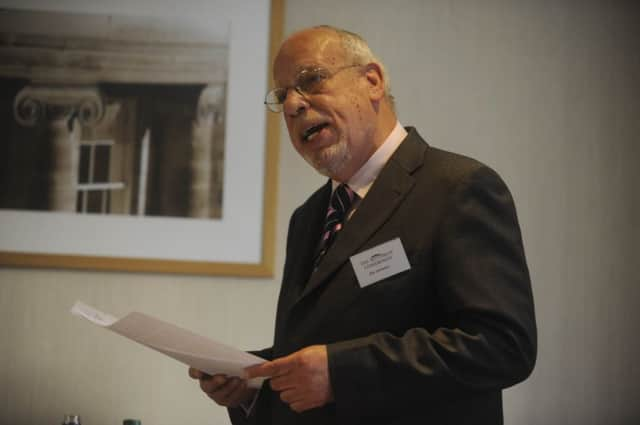Comment: Correction beckons for booming stocks


And it’s not just the unpredictability. It’s the prospect of a gridlocked parliament and a minority administration – whether Labour or Conservative – paralysed by uncertainty and vulnerable to defeat on key elements of their programme – the budget and the continuing commitment to debt and deficit reduction among them.
Minority parties can play to the gallery with populist “anti-austerity” rhetoric. Administrations dependent on “confidence and supply” arrangements will be constantly at the mercy of revolts that could bring government to an effective standstill.
Advertisement
Hide AdAdvertisement
Hide AdSuch a prospect would be deeply unnerving for financial markets – and particularly for overseas investors. Not only might foreign direct investment be vulnerable, but also the UK government debt market, critically dependent on foreign investment support to fund its debt. Sterling would be in the front line. Weakness here could bring forward a rise in interest rates. The global behemoths that make up the FTSE 100 have a diversity of earnings that would help protect them, but UK-facing small to mid-cap companies could suffer a sell-off.
So far, the UK stock market has been unperturbed by these concerns as it climbed to new peaks. But as awareness of the UK’s political predicament and its potential consequence sinks in this sanguinity may not last.
.A correction of sorts looks more likely than not. But here the relatively cautious nature of the FTSE 100’s advance to 6,900 and above may count against a severe sell-off.
This has not been a euphoric advance by historic standards. In the five years from 1995 to 1999, the FTSE 100 delivered double-digit gains in each year, with a cumulative gain of 88.9 per cent. By contrast, from 2010 to 2014, the FTSE 100 recorded three up years and two down years, with a cumulative gain of 20.9 per cent.
There is certainly room for debate on market overvaluation. But the gains of recent years have been tame compared to historic stock market bubbles. And while we have much to worry about, we are in a low inflation, low interest rate environment, with business surveys and activity data pointing to continuing economic growth. These should help underpin company earnings.
And there are plenty of cautious, defensive funds with large cash and near-cash holdings from which investors can choose. Last week I highlighted Edinburgh-based Personal Assets Trust, where manager Sebastian Lyon has recently been selling off equities in favour of defensive holdings – cash, gilts and gold. “The current stock market environment reminds me of 2000, right before the crash,” he told Morningstar. “While we might be calling the market correction a little early I would rather conserve investors’ cash than lose it.”
The Schroder multi-asset MM Diversity Fund has around a 40 per cent cash allocation – negative on corporate debt, government debt, property and US equities but positive on Japanese and European equities. Henderson Cautious Managed has a 17 per cent cash allocation, as does Axa Framlington Managed Balanced. Investec fund manager Alastair Mundy has upped the cash allocation in his Cautious Managed fund to 28 per cent.
Alliance quits smoking
ETHICAL investment and “sustainability” mark the latest pronouncements from Dundee-based Alliance Trust. It has raised the bar against tobacco stocks and arms manufacturers in its £2.7 billion portfolio. Chief executive Katherine Garrett-Cox’s comments on latest full-year results stressed environmental, social and governance factors in the investment process.
Advertisement
Hide AdAdvertisement
Hide AdIt’s taken Alliance a long time to quit tobacco – “socially responsible” funds were throwing out tobacco stock 20 years ago. During this period Alliance has enjoyed huge capital gains on its holdings in “Big Tobacco”, together with a fantastic dividend stream that has enabled it to raise its own dividend for 48 consecutive years – one of the longest records in the investment trust sector.
So what’s changed now? It could maintain dividends by dipping into reserves. But that’s hardly sustainable. The problem with so-called “ethical” or “sustainable” funds is that they do not have an outstanding track record, putting a question mark over assertions that such an investment approach delivers superior returns.
SUBSCRIBE TO THE SCOTSMAN’S BUSINESS BRIEFING